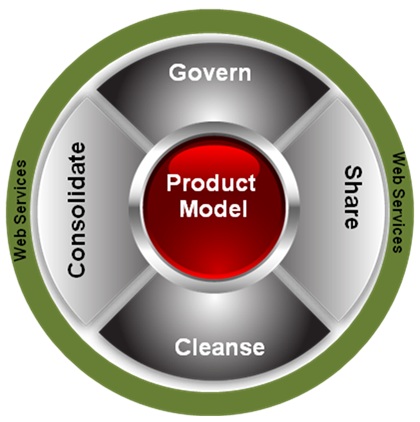Shyam Lakshman – Director of Product Management, PIM Data Hub
Unique Challenges and Opportunities of Multiple Retail Channels
Retailers around the globe face unique challenges in managing product information. Competitive pressures are forcing retailers to provide customers with a consistent and integrated buying experience across channels. Mobile commerce has become increasingly important with the usage of smart phones and tablets in the buying process. Evolving business models such as online marketplaces and store-within-store are redefining the boundaries of traditional retail stores. These trends also represent an opportunity for retailers to differentiate themselves and provide their customers with a better buying experience while improving their margins and enhancing their online reputations.
Here are some of the common challenges we hear about from retail customers:
- Volume and volatility of product changes: It is very common for retailers to deal with millions of products SKUs. Due to seasonality, competitive pressures and customer expectations, products are introduced and retired at very fast pace. There is an increasing need to capture and manage additional product attribution – from an average of 66 product attributes today to an estimated 250 attributes in future years according to a study conducted by GS1 UK. All this information needs to be captured in multiple languages to facilitate seamless operations across the globe.
- Variability of product data: The assortment of products carried by retailers varies widely in scope. The attribution requirements can vary significantly across merchandising categories and continue to evolve over time. Defining and capturing the correct product attribution is critical in making assortment and merchandising decisions. Compliance with regulatory and legal mandates also requires appropriate product attribution to be captured. The consequences of incomplete or inadequate attribution can result in loss of revenue and business reputation.
- Multiple sources and formats of product data: The source of product information is often the supplier and tends to be in different formats. The study conducted by GS1 UK has revealed that retailers are working with data that is inconsistent with their suppliers in well over 80% of instances. With the increasing acceptance of GDSN (Global Data Synchronization Network), larger retailers are looking for product data management solutions which can be easily integrated with it. If integrated correctly, this could increase the efficiency of data exchange retailers and their suppliers.
- Data Quality: Product data is often duplicated, inaccurate and not standardized. This contributes to process inefficiencies and hinders the ability to correctly classify products and translate product information into different. This is also a contributing factor to higher product return rates and its related costs.
- Multiple publication channels: Accurate and consistent product data needs to be made available to multiple channels – point-of-sale systems, merchandising systems, web stores, print catalog publication systems, mobile commerce. According to RSR Research, 40% of retailers have difficulty coordinating with other channels to create a seamless cross channel experience. They often lack the ability to centrally maintain and distribute content to create a seamless omni-channel experience
Next Generation MDM – Fusion Product Hub
Fusion Product Hub is the next generation product master data management solution built to address these challenges today. At the core of the solution is the enterprise product model around which we have built various business processes to consolidate, cleanse, govern and share the product record. We have re-invented the user experience to emphasize task based navigation, easy access to contextual information, embedded business intelligence and collaboration. It is available for on-premise deployment and on the Oracle Public Cloud. The solution was built around 3 key themes:
- Accelerate Business Processes: The new item introduction process was designed to efficiently induct large volumes of new items while validating business rules and policies. Optimized task based notifications and a dynamically generated user interface are designed to improve accuracy and response times. Social collaboration is enabled through integration with Webcenter Spaces, helping further streamline the item induction process. A configurable publication framework is provided to define criteria and content for publishing product data by spoke system. This enables product data to be managed once and re-used many times.
- Enforce Data Governance: Real time and batch data quality checking is enabled through integration with Enterprise Data Quality for Products (EDQP). This enables customers to de-duplicate, standardize, cleanse and categorize their product data effectively. A configurable business rules framework enables definition of rules across business entities and analyzes the impact of introducing a new business rule before activating it. Approval management for item changes can be used to dynamically derive key stakeholders and participants based on product attributes. Item version management allows customers to maintain a complete audit trail of product data changes and control the timing of their release.



Be the first to post a comment.